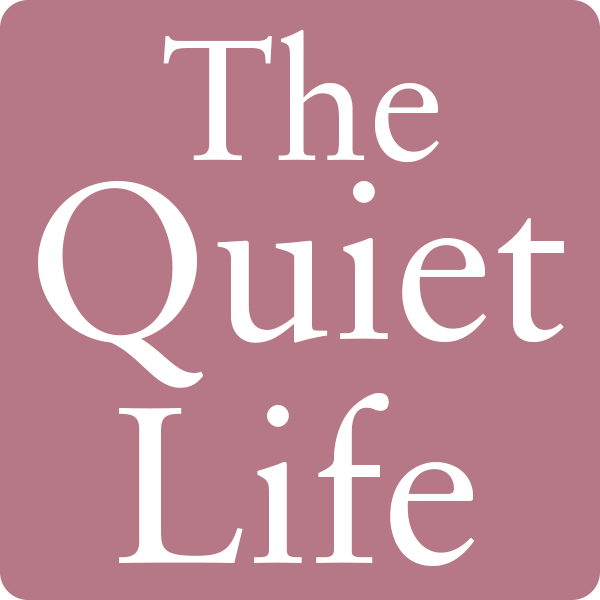A Quiet Life
The soft work of not being loud
In Quiet, Susan Cain explores the strengths and challenges of introverts in a society that elevates extroversion over introversion and puts the goals of the right hemisphere of our brain above those of the left (see Iain McGilchrist’s The Master and His Emissary: The Divided Brain and the Making of the Western World.) She argues that introverts, who are often overlooked in favor of their more outgoing counterparts, possess unique qualities such as deep thinking, creativity, and the ability to focus intensely on tasks. Introverts generally thrive in environments that allow them to work independently and at their own pace, and often the pace is slow and deliberate, a pace out of step with the “Cult of Productivity.” I first heard this term from Sukie Baxter in an interview with Julie Bjelland. Sukie’s admonition to rest for no secondary motive, not to recharge so that you can be more productive, is one I’m taking to heart these days. The quiet life is worth it, in and of itself. It can be the goal, rather than a benefit of a productive life.
Cain outlines in Quiet 4 themes for those with an introverted preference:
The Extrovert Ideal: Society’s bias toward extroversion and how it impacts workplaces, schools, and social norms.
The Power of Introversion: The strengths introverts bring, such as empathy, listening skills, and thoughtful decision-making.
Finding Balance: How introverts and extroverts can collaborate effectively and create environments that honor both personality types.
Self-Acceptance: Encouraging introverts to embrace their natural tendencies rather than feeling pressured to conform to extroverted standards.
In her audio book A Quiet Life in 7 Steps, Cain provides a framework for actually living the quiet life, one that quietly takes to task the cultural bias towards extroversion by challenging things like leadership styles (introverts are often more effective leaders) and what is “normal.” - hint, it’s not high levels of productivity. The seven steps are:
How Should I spend My Time?
Do I need to be a Leader?
How can I live a Truly Creative Life?
What do I do With Emotional Pain I can’t Get Rid Of?
How do I move Through My Grief?
How Can I feel Less Alone - and Experience Oneness?
How Can I Access Deeper States of Love for Myself, and Others?
Cain has also created a community on Substack (and beyond?):
The audio book provided reassurance that my priorities, preferences, and interests were not wrong or solipsistic. I’m seriously considering if the quiet life if possible for me, or if it is a bit too retiring and anonymous. As a writer, I want others to read my work, but I don’t want to do book tours, speaking engagements, or TV appearances. Cain overcame her own fear of speaking in public, and says others can too. I have spoken often in public, but have never enjoyed it. Part of the take away for me of this audio book is that I can construct a life I want, without feeling pressured to do things I really don’t want to do.
So for now, I will continue taking photos, making videos, and writing about topics that are of interest to me. I will continue working through my personal challenges towards a thriving life.
I realize one of the hard realities of life is that we are trapped in an economic system that creates indentured servants. The work ethic is a cleverly disguised tool to allow the rich to continue to exploit the labor of others. I have not been able to break out of this system and so I know that we must struggle both to make money, and to fight a system designed to keep us down and feeling powerless.
But part of our effort should be to follow our bliss. This term, coined by Joseph Campbell, is really about enthusiasm, and enthusiasm is derived from en- "in" and theos "god," and ism is the practice of doing something. So enthusiasm is practicing being in god or infused by god. In this sense what makes us excited or enthused are those activities we sometimes refer to as our calling. And interestingly, right near the end of his life Campbell said, “I should have said follow your blis-ters!” He explained that you can tell what you are meant to do, by what you are happy to work hard at.
The quiet life is one ideal, in fact it can be a calling. I agree with Sukie Baxter that as likely as not, a life of being is is important as a life of doing. Productivity will never bring lasting contentment, it will more likely keep us on a hamster wheel scrambling for more and more of what we already have. To live “off the wheel” does not mean a lazy life of sloth and meaninglessness, it means a life of bliss and blisters, and I can’t think of anything better for me at my station on the pilgrimage of life.



